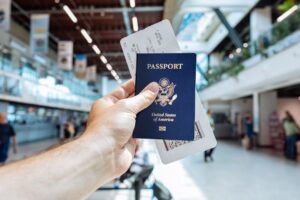For many foreigners, understanding and obtaining a Brazil CPF can feel like navigating a maze. This essential document is key to unlocking numerous opportunities in Brazil—from opening bank accounts to signing rental agreements. Without clear guidance, the process can be overwhelming and prone to costly mistakes. In this expert-driven guide, we demystify the Brazil CPF, explain why it’s indispensable for foreigners, and provide a step-by-step path to secure yours with confidence.
Failing to obtain a CPF or making errors during the process can delay your plans and complicate legal and financial transactions. Our goal is to equip you with clear, trustworthy information and insider tips from certified Brazilian legal experts to ensure a smooth application experience.
Read on to learn everything you need about the Brazil CPF, common challenges foreigners face, and how professional assistance can make all the difference.
Understanding the Brazil CPF: Importance and Legal Context
The CPF (Cadastro de Pessoas Físicas) is Brazil’s individual taxpayer registry identification number. It serves as a fundamental identifier for anyone engaging in financial or legal activities in Brazil, including foreigners.
- Why the CPF matters: The CPF is required for opening bank accounts, signing leases, filing taxes, and accessing government services.
- Legal framework: Issued by the Brazilian Federal Revenue Service, the CPF ensures that all individuals are properly registered within the country’s fiscal system.
- Who needs a CPF: Any foreigner planning to stay temporarily or permanently, conduct business, or make financial transactions in Brazil must obtain a CPF.
Understanding the CPF’s role is the first step to navigating Brazil’s legal and bureaucratic landscape effectively.
Step-by-Step Guide to Getting a CPF as a Foreigner
Obtaining a CPF as a foreigner involves several clear steps, but the process varies depending on whether you are applying from inside Brazil or abroad. Below is a general outline to guide you:
- Document preparation: Gather essential documents such as your valid passport and proof of address (international or Brazilian).
- Choose your application method: Apply either at Brazilian consulates abroad or directly through the Federal Revenue Service if you are in Brazil.
- Complete the application form: Accurate completion is critical—errors can lead to delays or rejection.
- Submit your application: Present your documents and form to the appropriate authority, either consular office or Receita Federal.
- Receive your CPF number: Once approved, you will receive your CPF, which you can use immediately for legal and financial transactions.
Note: Official procedures and accepted documents may vary, so consulting the official CPF registration site is recommended for the latest requirements.
If the process seems daunting, Outvisa’s certified legal team offers personalized support to guide you through every step, ensuring compliance and reducing risk of errors.
Common Challenges and How to Avoid Them
Many foreigners encounter specific difficulties when applying for a CPF. Being aware of these common pitfalls can save time and frustration:
- Incomplete or incorrect documentation: Missing or wrongly filled forms are the leading causes of rejection.
- Address issues: Foreign applicants often struggle with providing acceptable proof of address, especially when applying abroad.
- Language barriers: Official forms and instructions are primarily in Portuguese, complicating understanding.
- Delays in processing: Bureaucratic procedures can be slow, and errors may cause additional setbacks.
- Rejection due to duplicate records or data inconsistencies: These require legal expertise to resolve efficiently.
Pro tip: Hiring legal counsel, such as Outvisa’s experienced Brazilian lawyers, can help you troubleshoot issues swiftly and provide expert advice tailored to your situation.
Practical Tips and Checklist for CPF Application
- Verify all your documents are valid and translated if necessary by certified translators.
- Use official channels for application to avoid scams and misinformation.
- Keep copies of every document and submission confirmation.
- Consider professional legal assistance to review your application before submission.
- Stay informed about updates through government portals like the Brazilian Federal Police site and the Federal Revenue Service.
Following this checklist can significantly increase the likelihood of a smooth CPF registration process.
Frequently Asked Questions
What exactly is a Brazil CPF and why do foreigners need it?
The CPF is an individual taxpayer number essential for most legal and financial transactions in Brazil. Foreigners need it to open bank accounts, rent properties, and access various services.
Can I apply for a CPF from outside Brazil?
Yes, you can apply through Brazilian consulates abroad. The process requires submitting documents and application forms according to consulate guidelines. Outvisa can assist with this remote application process to ensure accuracy.
What documents are required to get a CPF as a foreigner?
Typically, a valid passport and proof of address are required. Additional documents may be requested depending on your application location. Professional legal support can help ensure you have all necessary documents.
What should I do if my CPF application is rejected?
Rejections often stem from documentation errors or data inconsistencies. Consulting with Outvisa’s certified lawyers can help identify the cause and guide you through corrections efficiently.
Is having a CPF mandatory for all foreigners in Brazil?
While not legally mandatory for all, having a CPF is practically essential for engaging in most financial and legal activities in Brazil. Obtaining one proactively can prevent future complications.
Conclusion
Understanding and obtaining a Brazil CPF is a crucial step for any foreigner planning to live, work, or do business in Brazil. By following expert-backed guidance and being aware of common pitfalls, you can navigate the application process confidently and avoid costly delays. Remember, professional legal assistance is invaluable in ensuring your CPF application is accurate and compliant with Brazilian regulations.
Reach out to us for personalized consultation based on your specific requirements.







